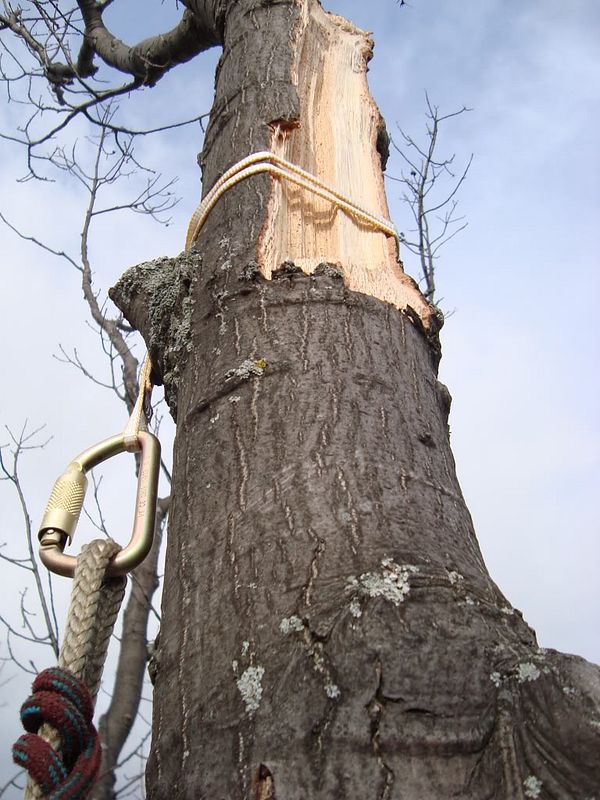Well first I'll say I wont even think of using anything I don't feel 100% comfortable with. Then theres this situation ( not looking for sympothy, just some sense of understanding )
Came home from Iraq in June 2008, had to start the tree businesss all over, as I was really small as it was, only doing stuff on a couple weekends a month with 1 or 2 other guys. Problem was I didn't have a job when I got back. went to school full time for a year for Electrician. good amount of my gear was stolen while I was gone, and really dont have the money to replace it all at once. Doing the best I can. So if I can find a way to save some cash, AND still be safe, then I will untill eveything gets up and going good again. Unfortunatley on August 15, 2010, I will be heading to Afghanistan. So knowing all that. I don't want to dump a lot of money into the business, mostly because what if I do, and don't come back in one piece or at all. I'd rather get back healthy, and be able to do tree work. Then I'll spend on all the nice things, like that ART rope guide, sure looks nice. Most folks don't have to contend with that scenario, I do. Unfortunatley I chose the infantry for my military career, so they give me a rifle, sniper rifle, and a ton of ammo, and go do my job.
Again, not mad or offened at any comments, just thought I'd share my scenario. I have also tried several times to get in with a more established local company with no success. Did a little brush dragging here and there a few years ago. So if anyone near Western Ma needs a guy here and there on weeknds, I'm not above being a ground guy again.





